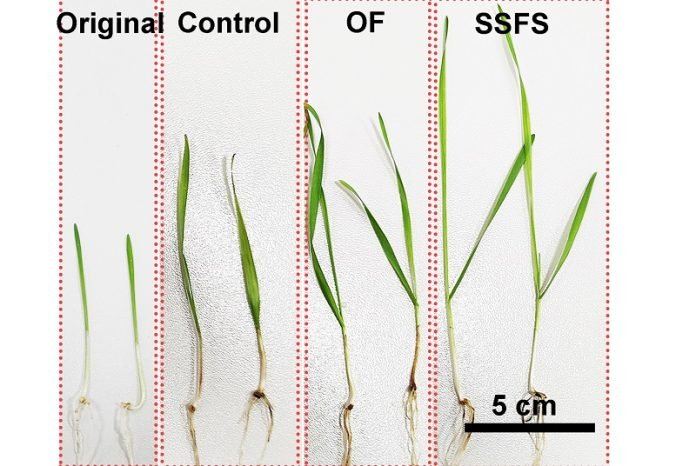
A team of researchers from The University of Texas at Austin has made a breakthrough in farming technology, addressing one of the key challenges in modern agriculture – excessive use of fertilizers and the resulting environmental pollution.
In a bid to combat the harmful effects of over-fertilization, the researchers have developed a smart farming platform that enhances crop yield while reducing ecological impact.
This innovative system utilizes a copper-based hydrogel that can capture and transform surplus nitrate waste from fertilizers into ammonia, a fundamental ingredient in fertilizers.
This cycle allows the otherwise harmful runoff to be reused productively, contributing to more sustainable farming.
Guihua Yu, a professor at the University’s Walker Department of Mechanical Engineering, said that this technology can match or even exceed traditional farming methods’ crop yield without relying excessively on nitrogen.
Nitrogen, while important for plant growth, can contaminate groundwater and contribute to greenhouse gas emissions when overused.
Published in the Proceedings of the National Academy of Sciences, the study reveals that the innovative gel not only converts nitrate waste into usable ammonia but also can sense the nitrogen content in the soil.
This sensing ability helps in deciding the best time to extract nitrate from the soil, preventing it from escaping into the environment.
When tested, the smart farming system demonstrated superior results, producing wheat and rice plants that were taller and had larger leaves, all while reducing nitrogen runoff.
Excessive nitrogen in fertilizers can ironically stunt crop growth, negating their very purpose of boosting productivity. This new technology can resolve this issue by enhancing the plants’ ability to absorb and utilize nitrogen more effectively.
The smart farming research comes at a critical time when the world is struggling to meet the food needs of a booming global population, which is expected to grow by over 2 billion people by 2050. With limited land availability and an urgent need to reduce harmful emissions, this advancement could be a game-changer.
The problem of nitrogen pollution isn’t limited to farming. Many industries, including electronics manufacturing, food processing, and textiles, contribute to nitrate-heavy wastewater. Professor Yu believes that finding ways to capture and recycle this waste could have enormous benefits across various sectors.
The team plans to further enhance this farming platform by integrating artificial intelligence (AI).
This upgrade aims to increase the range of crops the system can support and further streamline fertilizer usage, paving the way for a more sustainable future in agriculture.



